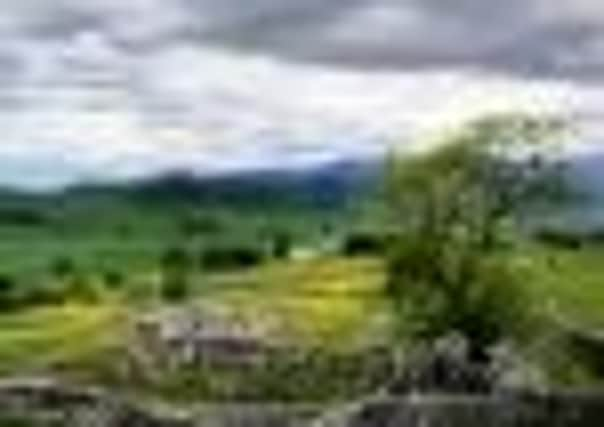Celebration of true classical icons and unsung heroes


When it comes to classical music, Richard Fawkes has an encyclopaedic knowledge.
Having already written nine books on everything from the history of opera to a who’s who of musicals, for his tenth, he decided to use the titbits he’d gathered during his career to chart a musical road trip around the country.
Advertisement
Hide AdAdvertisement
Hide AdThe result is The Classical Music Map of Britain and the Yorkshire leg of the journey begins perhaps unsurprisingly in Bradford, birthplace of renowned composer Fritz Theodore Albert Delius.
St Peter’s Church, now Bradford Cathedral, where Delius was christened, gets a namecheck as does the German Church that his parents helped to found.
As well as using his own extensive knowledge, Fawkes also had a little help compiling the final list from readers of Classical Music Magazine and the final book is an exhaustive A to Z of the places that have played their part in shaping classical music over the centuries. Places like the building which is now home to the NatWest Bank in Settle’s Market Square where a plaque commemorates the long friendship between Edward Elgar and Dr Charles Buck who once lived there.
“There’s something wonderful about being able to go and look at something connected with a composer,” says Fawkes.
Advertisement
Hide AdAdvertisement
Hide Ad“I would like to think that readers will keep the book in their cars and as they travel around the country use it as a guide to places of interest. Somewhere like Settle is a case in point. There is no doubt that Elgar knew the area well. He played golf on the local course, went for long walks in the surrounding countryside and drank in the Hart’s Head Inn, in Giggleswick.”
Not all of the entries in the book are as well known as Delius and Elgar. Take, William Baines, a self-taught composer who was born in Horbury near Wakefield.
“He died aged just 22 from tuberculosis and he’s what I describe as an ‘if only’ character.
“He served at the beginning of World War One, but was invalided out and his health never really recovered. However, when he died in York he had left behind a staggering 150 compositions, mostly for piano.”
Advertisement
Hide AdAdvertisement
Hide AdAs for Fawkes’s own personal favourite, it has to be Thomas Weelkes, who was both a gifted madrigal composer and a drunkard.
“He was employed as the organist in Chichester Cathedral; though he was dismissed from his post in 1617, for beginning to play for a service whilst smashed out of his mind,” says Fawkes. “He was also involved in a lawsuit for attempting to throw his own mother out of a window. Weelkes died in London in 1623 after he went on an almighty bender with the inappropriately named Henry Drinkwater.
“Right from the start I based the entries on whether I would want to read about them. If they’re interesting, they’re in the book.”
Fakwes hopes the book will encourage people to listen to music of overlooked composers, men like Haydn Wood, who was born in Slaithwaite in 1882.
Advertisement
Hide AdAdvertisement
Hide Ad“He was a prolific composer of what became known as light music,” says Fawkes. “In modern times he has been largely forgotten, but works like Roses of Picardy are coming back into fashion and I hope this book helps that revival.”
The Classical Music Map of Britian, by Richard Fawkes, is published by Elliott & Thompson Limited, priced £7.99.
Organist killed in first world war
Ernest Bristow Farrar: Born in 1885 in Lewisham, Farrar moved to Micklefield in West Yorkshire as a youngster.
He later attended Leeds Grammar School and won a scholarship to the Royal College of Music to study organ music with Sir Walter Parratt. By 1916, when he had a post as composer and organist at Harrogate’s Christ Church, he was called up to serve in the First World War.
Advertisement
Hide AdAdvertisement
Hide AdIn 1918, he was granted leave from The Somme to return home to conduct the first performance of Heroic Elegy, dedicated to his fallen comrades. Within a few days of his return he was killed at the battle of Epehy Ronssoy.